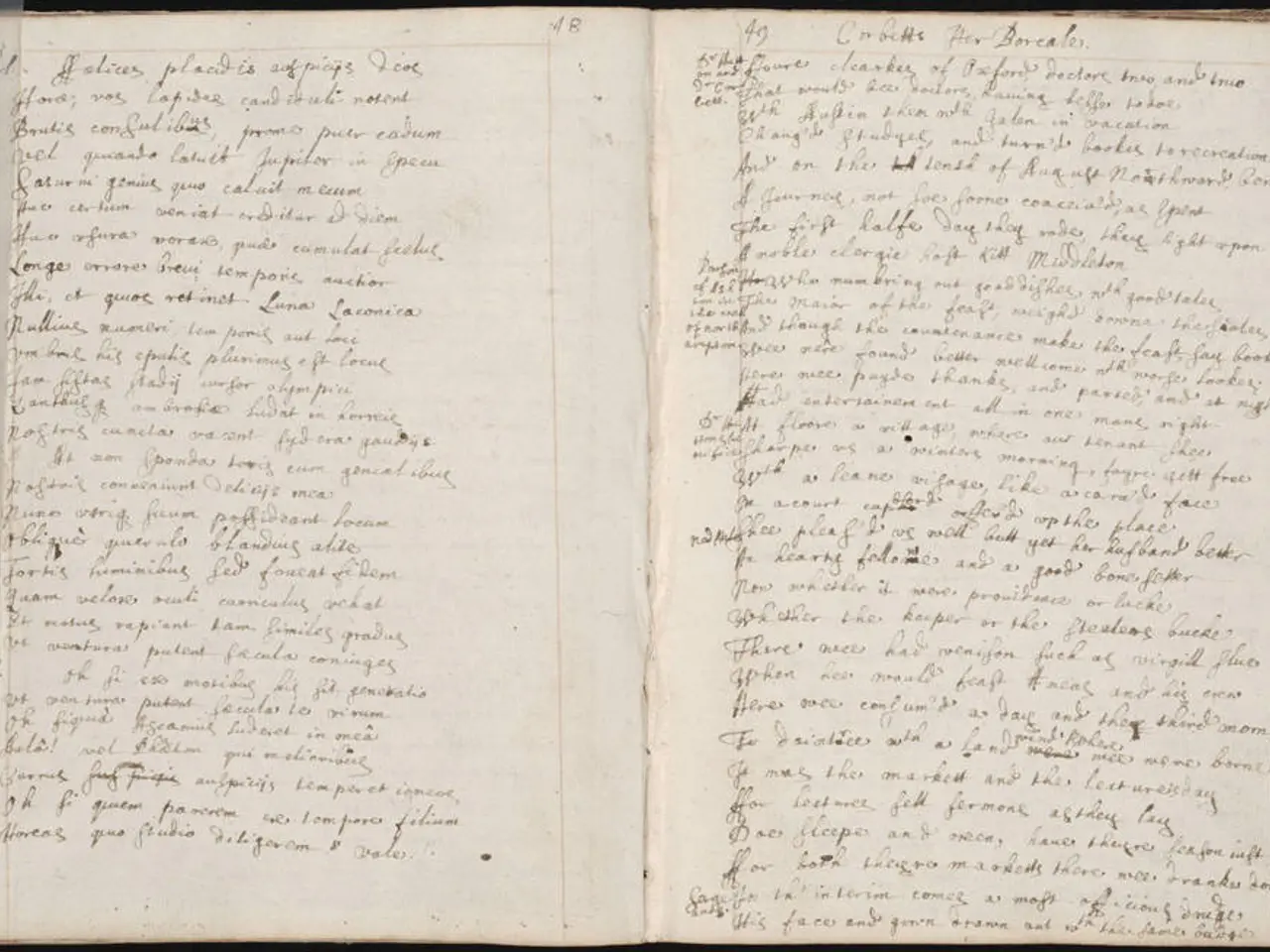Exploring the Literary Landscapes of Ancient Rome in the Augustan Era: An In-Depth Review (Unrestricted Study Materials)
In the late Roman Republic and early days of the Empire, a golden age of literature flourished under the rule of Augustus Caesar. This period, known as the Augustan era, marked a significant turning point in the development of Western literature and culture, lasting from 27 BCE to 14 CE.
During this time, writers like Horace, Virgil, Ovid, and Livy produced a wealth of works that not only reflected the shifting social and political climate of Rome but also served as powerful instruments of imperial propaganda. The literary culture of Augustan Rome was instrumental in legitimising Augustus Caesar's new autocratic regime, embedding it within traditional Roman values and divine destiny narratives.
Augustus Caesar, the first Roman emperor, oversaw a period of profound change during which imperial power and political stability were solidified. To ensure acceptance and stability, he presented himself as the restorer of the Roman Republic, a reformer who would revive traditional Roman values while ensuring peace and stability.
One of the key aspects of the propaganda's role was the legitimization of Augustus’s power. His military victories, divine favour, and role as a restorer of peace (Pax Romana) were emphasized in his works, such as the Res Gestae, his account of achievements. This portrayal of him as the supreme military leader and saviour of Rome helped to legitimise his rule.
Another important aspect was the promotion of Roman superiority and expansionism. Works like Virgil’s Aeneid reinforced the ideology of Roman destiny and imperial mission, presenting Rome’s dominance as divinely ordained. This narrative aligned with Augustus's political agenda of conquest and consolidation of the empire.
Augustus also sought to portray himself as a restorer of traditional Roman morals and religion, aligning his rule with the ancient Roman past to satisfy conservative elements of society. This traditionalist image was promoted through patronage of writers like Virgil, Horace, and Livy, who glorified Roman virtues and Augustus’s role in reviving them.
The propaganda reshaped Roman political ideology from the chaotic republic with competing factions towards a system where the emperor was the benign and divinely sanctioned ruler. It emphasized order, peace, and the notion that Augustus’s reign was a restoration rather than a revolution, thus softening resistance to imperial rule.
Imperial propaganda was disseminated not only through literature but also via coinage and monumental architecture. For example, coins minted under Augustus carried messages highlighting his military strength, divine favour, and role as the bringer of peace.
Augustus's patronage of the arts was a central aspect of the literary culture of his time, with writers often employed by the emperor or other wealthy patrons. Themes of empire, moral renewal, and Roman identity were explored by these writers, creating a body of work that still influences political ideologies today.
One of the most famous works of Augustan literature is Virgil's Aeneid, a national epic that serves both as a celebration of Rome’s legendary origins and as a justification for Augustus's rule. Another notable work is Ovid's Metamorphoses, a sprawling narrative poem that reinterprets Greek and Roman myths, often celebrating the power of transformation, individual freedom, and love.
The legacy of Augustan literature is still felt today, particularly in the influence it had on European literature during the Renaissance. The theme of transformation is central to Augustan literature, reflecting the profound changes occurring in Rome during the emperor’s reign. The Augustan ideal of the relationship between literature and power continues to influence political regimes.
In conclusion, the literary culture of Augustan Rome played a crucial role in shaping the political ideology of the era by promoting acceptance of the emperor’s authority, framing it as a necessary evolution to ensure Roman peace, stability, and supremacy. This legacy continues to resonate in the works of writers today, offering insights into the manner in which literature may reflect, mold, and question social values.
[1] Griffin, J. (1984). "Seneca: A Study in Consistency". Oxford University Press. ISBN 978-0-19-814789-6. [2] Habinek, T. (1998). "The Politics of Roman Laughter: Poetry and the Roman Game". University of California Press. ISBN 978-0-520-20651-9. [3] Wallace-Hadrill, J. (1997). "Houses and Society in Pompeii and Rome: A Study of the Domus and Insulae". Johns Hopkins University Press. ISBN 978-0-8018-5880-0. [4] Wardman, C. (1977). "The Augustan Empire: 43 B.C. to A.D. 180". University of California Press. ISBN 978-0-520-03507-2. [5] Zanker, P. (1988). "The Power of Images in the Age of Augustus". University of California Press. ISBN 978-0-520-06417-3.
Characters like Horace, Virgil, Ovid, and Livy, during the Augustan era, used their poems and literature as tools for characterization, not only portraying Augustus Caesar as a military leader and Rome's savior but also depicting themselves as supporters of the imperial regime.
Through the analysis of literature produced during this period, it becomes evident that themes of Roman superiority, moral renewal, and power were central to the writings, aligning them with the propaganda objectives of Augustus Caesar.
Education and self-development were indirectly promoted through the patronage of Augustus Caesar and other wealthy patrons, encouraging writers to explore themes of empire, morals, and Roman identity, which continue to influence political ideologies today.




